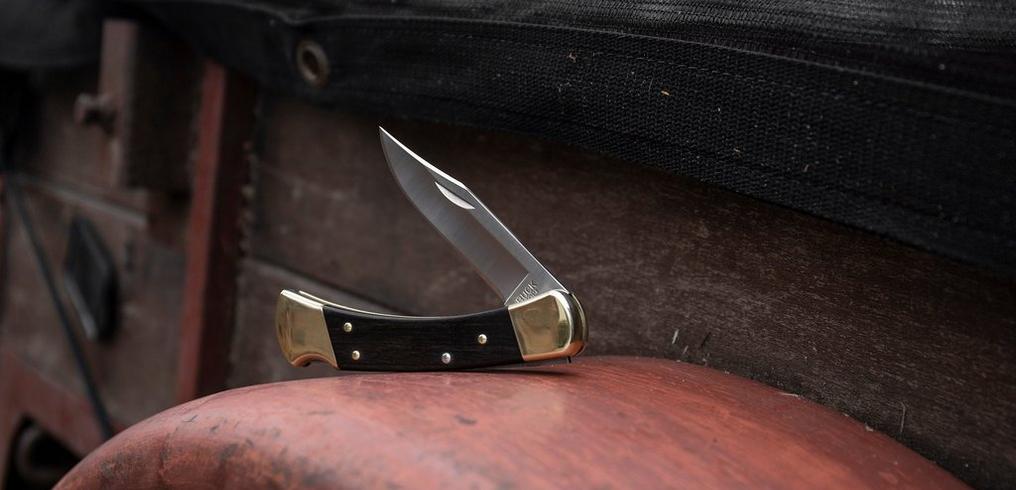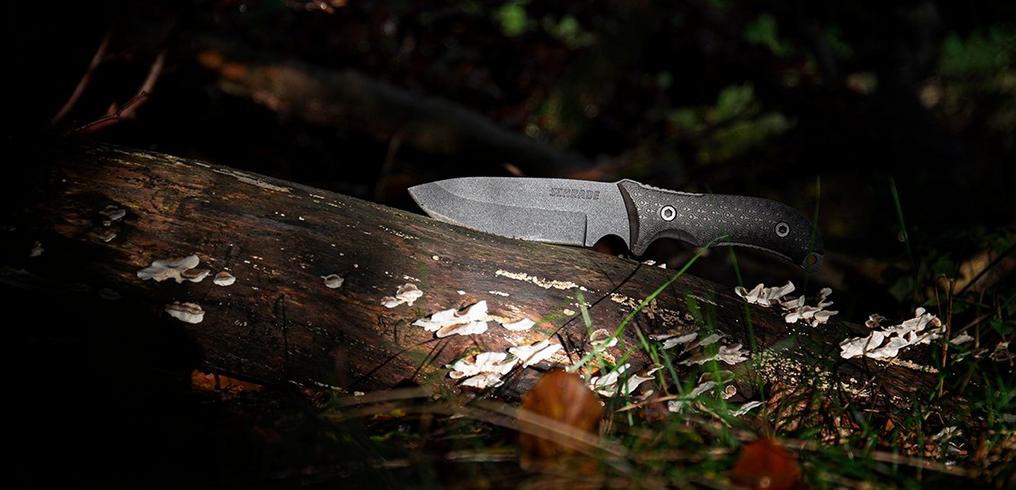Bearings for pocket knives: all washers and ball bearings
In order to properly open and close a pocket knife the knife should be enhanced with a bearing. It could be a flat disc, a so-called washer, but it could also be ball bearings. Within those two options there are also different materials you can choose from, each with their own advantages and disadvantages. We have listed them for you.
Washers for pocket knives
A washer is a flat disc around the pivot. In general the following applies: the larger the washer, the more stable the blade. Do you know you will be using one intensively for the more heavy-duty cutting tasks? If so you should choose a knife with larger washers. In the washers category there are two materials that are frequently used: phosphor bronze and Teflon®.
Phosphor bronze washers
The most occurring option is phosphor bronze. These copper-coloured washers are known as the strongest option for a pocket knife. The material itself is an alloy of copper with phosphor and tin. It is reasonably tough and because of the addition of phosphor it won’t oxidize the way pure copper would.
Phosphor bronze has a low friction coefficient making it perfect to smoothly open and close a pocket knife. In addition, washers are less likely to suffer from a lot of dirt than ball bearings. You do, however, need to keep phosphor bronze greased. When dry it won’t function at all and can wear out quickly. A small sacrifice, especially considering the advantages of phosphor bronze washers.
Teflon® washers
Teflon, a product made by DuPont is a remarkable material. You might have heard from it from frying pans, but it was originally developed for NASA for the Space Shuttle. As non-stick coating in pans you know that it works wonders. So also perfect to resolve the friction in between a blade and a handle. The main advantage of Teflon is that it will even function properly ‘dry’ without oil or grease. As such you can hold a pocket knife with Teflon washers underneath a hot tap to clean it. Of course the mechanism will work even better with a little grease, but it does demonstrate that Teflon has its own qualities.
Teflon, however, also has disadvantages. For instance Teflon is prone to dent a little when a lot of sideways pressure is applied to the blade. Not something that will cause problems, but it is what sets it apart from phosphor bronze.
Ball bearings for pocket knives
Because of the emergence of flipper pocket knives in recent years you also come across ball bearings a lot more. Originally often only on very expensive knives, today also on models that are a little more affordable. Because the balls roll in between the blade and the frame, knives with ball bearings will open and close very smoothly.
Ball bearings do, however, have some disadvantages. They, for instance, are more sensitive to rust. A little dirt from your pocket could sometimes already cause the knife to work differently. Regularly blowing through it with compressed air is therefore recommended. In addition, ball bearings don’t work really well when dry. Grease or oil are therefore always necessary. Good to know: each knife is different, and one knife will work better with grease while the other will work better with oil.
There are also others who claim that the contact surface between the ball bearings and both the blade and the frame is relatively small. As a result a lot of pressure would be applied on a small piece of surface. The same way a pump would apply more pressure in one place than sneakers. As a result the frame of the pocket knife would wear out a lot faster. Fortunately manufacturers keep that in mind by placing steel washers in between the frame and the ball bearings. We do, however, think that this is a difference that can be neglected over the overall life of the pocket knife.
Steel ball bearings vs ceramic ball bearings
Steel ball bearings are used most often. We do, however, come across ceramic ball bearings more and more often. That raises the following question: why?
There are some things to mention, but basically all arguments lead back to the same statement: ceramic is harder than steel. Those harder bearings make the pocket knife work even better than steel ball bearings. In addition, in general you can assume that ceramic ball bearings don’t wear out as fast. We assume that that difference can only be noticed after years and years of intensive use.
Rust is also an issue. Steel, even stainless steel can start to rust in time. And while ball bearings are greased to decrease the risk of rust you could come across some rust or stains in maritime circumstances. That is also where ceramic ball bearings excel: they don’t rust.
Ceramic ball bearings, however, are a little more expensive than steel ball bearings. Something you will immediately notice when you look at the overall price of the concerning knife. As a result you could ask yourself if this material has that much added value over the familiar steel balls.
Exceptions and other materials
The different bearing options explained above are based on the most occurring cases. There are, of course, exceptions. There are after all hundreds of pocket knife makers, and techniques evolve as well. In addition, there are knives that don’t have any separate washers or ball bearings, but where the handle has been enhanced with the desired bearing. The Spyderco Pingo, for instance, which is no longer available, had protrusions on the inside of the FRN handle that ensured the knife opened and closed smoothly.
Conclusion: which type of bearings are perfect for me?
It is clear that each type of washer or ball bearing has its own advantages and disadvantages. Based on this fact you can decide which type is best for your purpose. Do you come across a lot of dirt while at work? If so washers are the best choice for you. If you feel a knife should run smoothly you should choose ball bearings. At the end of the day it remains your choice and for each of these options there is a perfect knife out there for you.
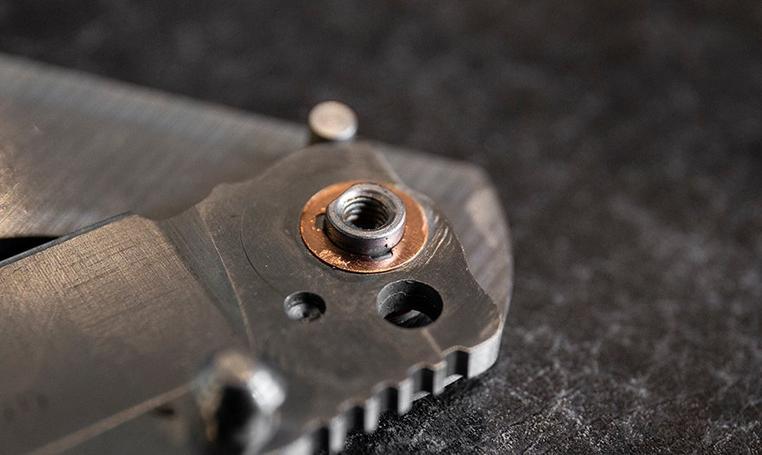
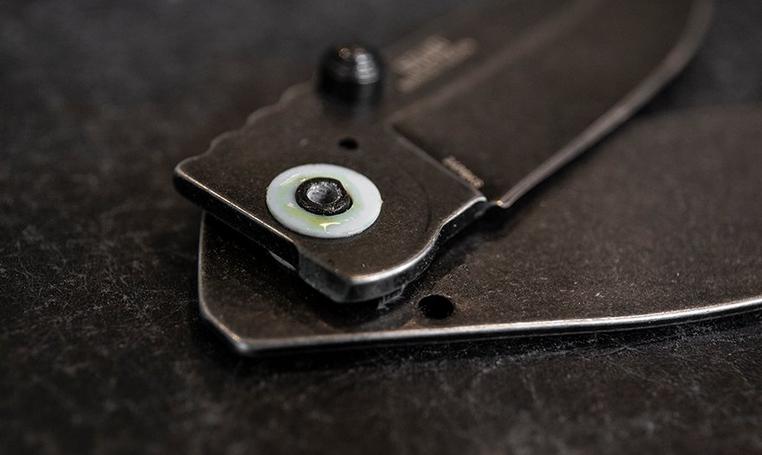
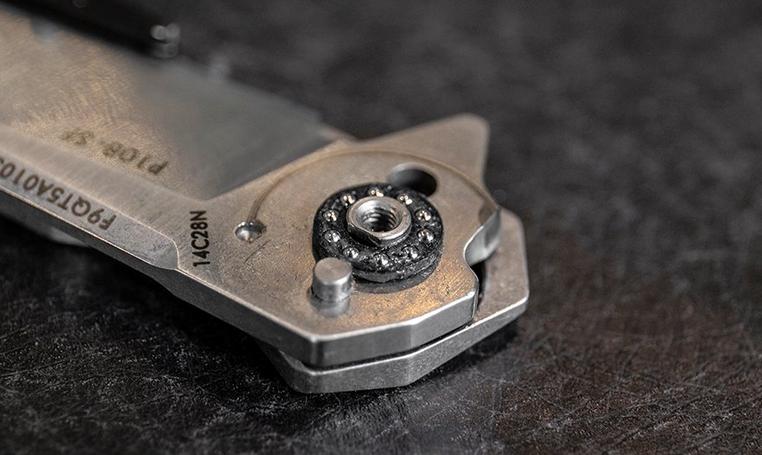
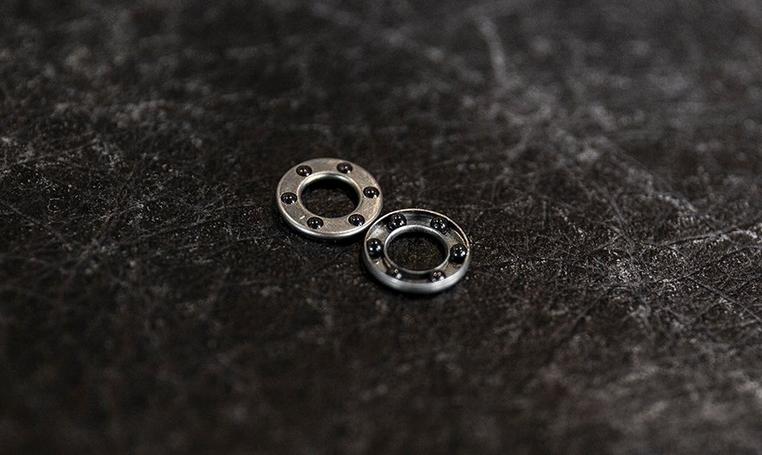
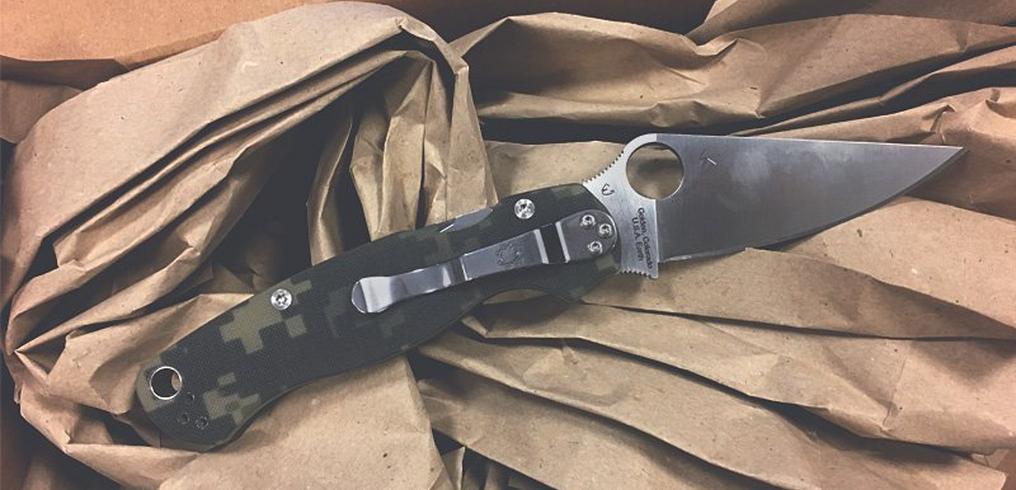
?%24center=center&%24poi=poi&%24product-image%24=&fmt=auto&h=490&poi=%7B%24this.metadata.pointOfInterest.x%7D%2C%7B%24this.metadata.pointOfInterest.y%7D%2C%7B%24this.metadata.pointOfInterest.w%7D%2C%7B%24this.metadata.pointOfInterest.h%7D&scaleFit=%7B%28%24this.metadata.pointOfInterest%29%3F%24poi%3A%24center%7D&sm=c&w=1016)
